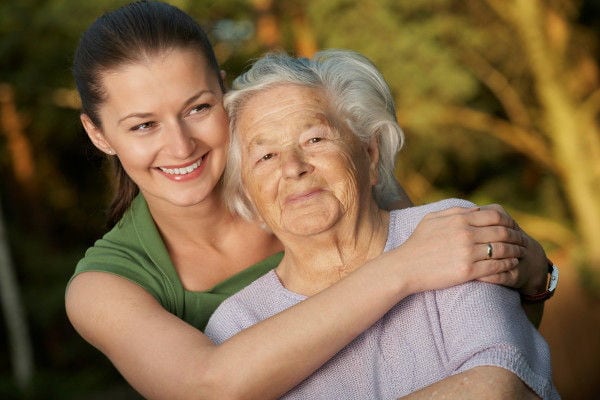With people living longer and longer, many families will have increasingly older parents and grandparents. As relatives age, they will require more and more assistance with daily life.
How do you know when they will need a helping hand? Here are 8 signs to look out for and who you can go to for help.
1. Physical difficulties
Are your elderly relatives having trouble walking or getting up from a chair? If so, take a look at their home. Is the staircase awkward to navigate, are there slippery tiles, does the furniture create obstacles or are they having trouble getting in and out of the shower?
Who could help: Visit the doctor regarding your relative’s mobility or arrange for home modifications throughout the home to improve accessibility. If they have muscle, joint pain or trouble with their knees, they may need a cane or walker.
2. Increasing forgetfulness
Do your elderly relatives forget appointments or bills that need to be paid? Have they been getting lost more often? Maybe they have begun repeating themselves or putting common objects in illogical places. Perhaps they forget the dosage for their medicine, or don’t take it altogether.
If this is the case, an assessment might be in order to help determine options and resources. Once you know what is going on with your relative, be it a medical condition or dementia, you will better know how to help them.
Who could help: Talk to your relative’s doctor about an evaluation (both medical and cognitive). You can also hire a carer to provide transportation and assist with medication.
3. Decrease in hygiene
Is your dad’s hair uncombed and teeth not brushed? Is he no longer going to the barber with his usual regularity? Is he wearing the same or inappropriate clothing? Lack of awareness about his personal appearance might be a sign of physical problems, depression or Alzheimer’s. It is important to talk to them about the situation.
Who could help: The conversation will indicate your next step. It maybe a budget problem or they may need transportation to a store for groceries or clothes. However, there might be medical or cognitive concerns that require a visit to the doctor.
4. Loss in appetite
Is your relative losing weight, becoming dehydrated, not cooking, forgetting to eat or eating unhealthily? In this case it might be that they have trouble cooking, reading a recipe, holding utensils or operating the cooker. Or, they may have difficulty with their sense of taste and smell. Check the fridge for out of date food. Make sure your relative is drinking plenty of fluids to avoid dehydration, especially during the summer heat.
Who could help: Hire someone to provide domiciliary care and who can prepare meals. Consider a meal delivery service or take on this chore on your own.
5. Personality changes
Do you notice a change in your relative’s personality, particularly in the evening? Are they talking too loudly or too softly? Are they accusing people of doing or saying things against them or displaying other odd behaviours? This may be sun-downing or late-day confusion.
Is your relative usually social and active; visiting friends, participating in faith, civic or community activities? Or have they become listless, with low spirits and a lack of energy? If so, find out why they are no longer interested. Simply ask them about it. Why are they no longer taking part in activities?
Changes in personality can result from other things aside from Alzheimer’s or dementia, which look different in every individual. You may have to be creative and try multiple strategies to address changes in personality and meet your loved one’s needs.
Who could help: A doctor will address medical issues. Or, it may be as simple as needing alternative transportation to take them to their chosen activity.
6. Clutter around the house
Is there dirty laundry or unopened mail? Is the house unkempt, especially in the kitchen and bathroom? Does the lawn need mowing? Maybe maintaining the home is becoming too much for your loved one to handle.
Who could help: A housekeeper, gardening service or carer for the elderly.
7. Scratches, bruises & burns
Have you noticed unexplained bruises, bumps, scratches or burns? These may be signs your elderly relative is having difficulty taking care of themselves.
Who could help: The house may need some renovations to become suitable for an elderly person. Hiring a housekeeper or meal delivery service may be helpful. Ultimately, you want to make sure that your loved one is safe and able to live at home.
8. Illnesses or physical difficulties
If your relative suffers from advanced diabetes or has physical difficulties, such as Parkinson’s or strokes, they may need you to step in. Find out what the problem is and what services can be provided to keep your loved one active and social despite the disability.
Who could help: In addition to medical advice, transportation services or housekeepers can be a big help with quality of life.
After being independent and self-sufficient for so long, it can be difficult for elderly people to acknowledge they need help. It is important to communicate with your relatives, letting them know why you are worried and that you want to help. Then come up with solutions together.
